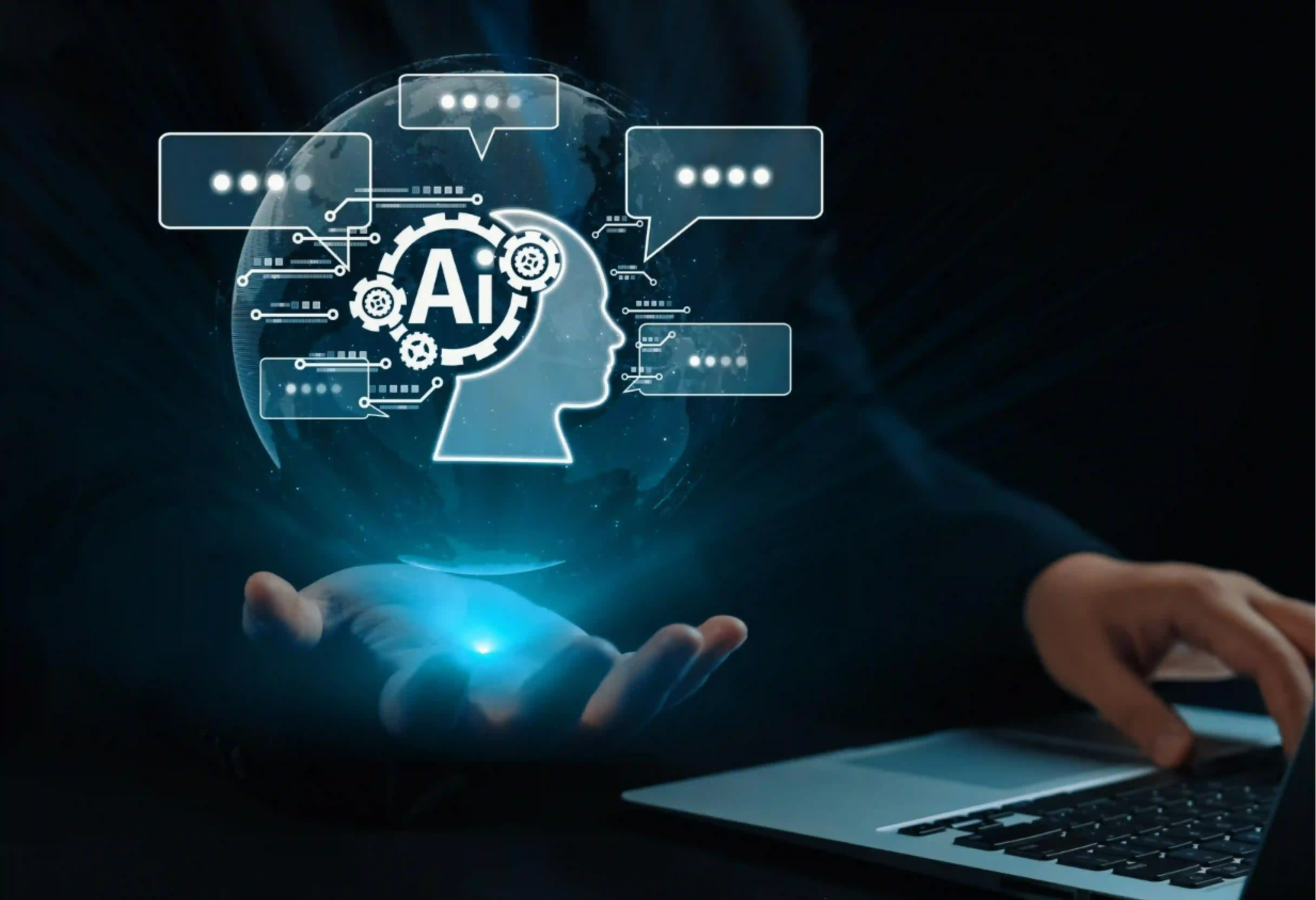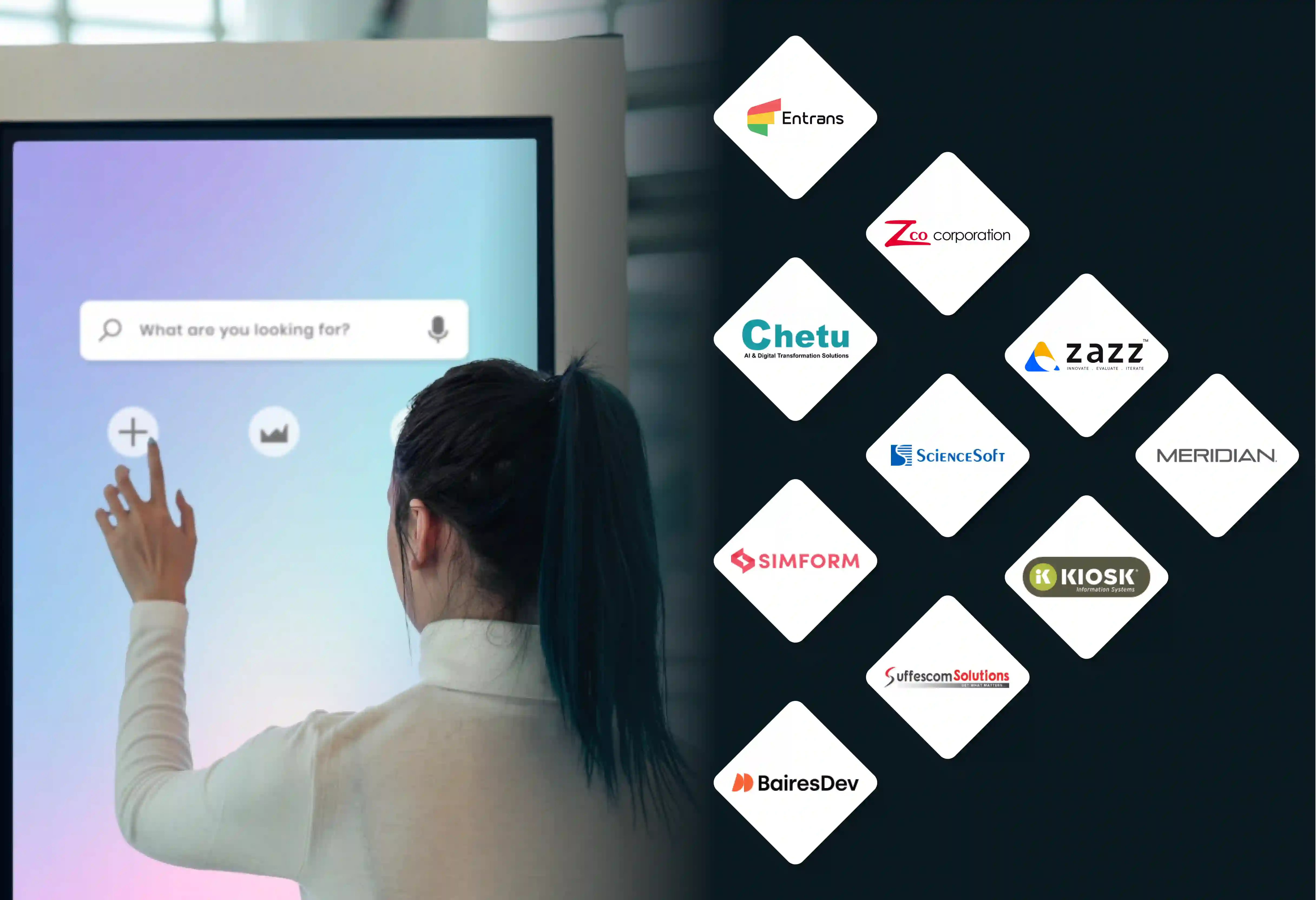Software releases are becoming more frequent nowadays, but QA teams often struggle to keep up. As applications become more complex, manual testing methods cannot cope with them.
That’s where AI testing tools come in, which accelerate the development cycle and cut down the budget cost for testing. AI tools for testing give smart solutions and detect bugs faster, so they reduce the manual effort.
From AI tools for Software testing that achieve higher accuracy to generative AI testing tools that can create automated test scripts, the future of QA is interesting.
This post will highlight how adopting AI-driven testing tools in 2025 will become a necessity rather than an option.
What are AI Testing Tools?
AI testing tools are software platforms that use Artificial Intelligence and Machine learning to improve the software testing process and help in automating it.
These tools can learn, adapt, and make decisions to find bugs and improve application quality. They help in automating many time-consuming and repetitive tasks.
The key AI capabilities in Testing tools are self-healing scripts, Intelligent Test generation, visual validation, Predictive Analysis, and Autonomous AI testing.
Benefits of using AI tools for QA testing
AI tools utilize machine learning and make the testing process faster when compared to traditional QA automation methods. The key benefits of AI tools for QA testing are
- Increased efficiency and speed: AI testing tools can automate repetitive tasks and time-consuming tasks like regression testing, and speed up regression cycles. This allows the QA teams to focus more on complex and strategic tasks and deliver releases faster.
- Self-healing tests: If there are any changes made to the application’s user interface, AI software testing tools can detect them and change the test scripts. This step is minimizing maintenance overhead.
- Enhanced Accuracy and quality: AI-based automation testing tools are highly accurate and consistent. They can analyze vast datasets and identify patterns that human testers might miss. This leads to more precise bug detection.
- Improved Test Automation and Test coverage: AI testing tools can analyze the requirements clearly and check on data history to automatically generate test cases. This ensures better coverage and reduces manual effort. AI tools can generate a wide range of test scenarios covering both positive and negative edge case scenarios. This makes the applications produce fewer bugs.
- Cost and Resource Optimization: Since manual effort has been minimized, the operational and maintenance costs are reduced. Because of automated repetitive tasks, QA teams can focus more on strategic and innovative things.
- Real-time Predictable Analytics: AI testing tools analyze past history of the data and defect logs and predict which part of the application might cause issues in the future. This is predictive capability, which allows the QA teams to prioritize and concentrate on high-risk areas. This peculiar capability catches bugs earlier in the development phase itself.
Types of AI Testing Tools
AI tools for testing are designed to address the software development lifecycle and quality assurance process. The main types of AI testing tools are
- AI tools for automation testing: These tools use generative AI to create test cases, test scripts, and test data from natural language descriptions or user stories. They use self-healing scripts that can change the test scripts automatically when there is any change in the application’s UI.
- Visual AI Testing tools: These AI tools help in identifying and validating the visual appearance of an application. They can basically compare screenshots of an application and identify the differences between them, both on context and pixel-for-pixel. They can also detect issues like misaligned elements, overlapping text, or any font size mismatch.
- Generative AI testing tools: Generative AI tools for software testing use large language models (LLMs) to generate test cases, test data, and test scenarios automatically. They can create a detailed list of test cases, including positive, negative, and edge case scenarios. They can also write executable test scripts from simple test requirements.
- AI tools for API testing: These tools create and validate API tests by predicting likely features, suggesting missing test cases, and ensuring integration.
- AI for Security and Penetration Testing: AI penetration testing tools are a type of tool that uses AI to actively search for and find vulnerabilities in a system. These tools help organizations to strengthen their application security.
- AI for performance and Load testing: AI for performance and Load testing tools can simulate user behaviour and analyze system performance under different conditions. These tools do predictive analysis and find the potential bottlenecks in the system. They help to prevent the issues before they occur.
Where AI testing tools are used
AI testing tools are used in various sectors and for different types of software applications. The main areas where it is used are
- Web and Mobile Applications testing: This is most commonly used for AI testing tools. They can test a web application for cross-browser compatibility, visual regressions, and functionality. AI tools help with testing on a large number of virtual and physical devices. They are particularly used for visual testing on different screen sizes.
- DevOps & CI/CD testing: AI tools are embedded in continuous integration and continuous delivery pipelines and provide feedback with every code change.
- Regression and Functional testing: Gen AI testing tools are used to automate regression cycles, and with self-healing scripts, scripts can be changed easily, saving time and maintenance.
- Reducing Test Maintenance: Since AI tools automatically update the test scripts, maintenance has become easy for applications with frequent UI changes.
- AI-powered Exploratory Testing: AI-based automation testing tools can perform exploratory testing and find bugs without predefined test cases. In this way, new features can be tested easily, and it is beneficial for testers.
- Specific industries: AI testing tools are used in a variety of industries such as Financial services, e-commerce, retail, and healthcare. Mostly, they are used for security and performance testing purposes to ensure that the applications can handle high volumes of transactions. In e-Commerce, they are used for product listing, payment gateways, and checkout processes.
- Security and Penetration Testing: AI testing tools are used to improve security testing. They can scan code and network systems to find security vulnerabilities that might have been missed by traditional methodologies. Some of the more advanced AI tools can simulate the actions of a malicious attacker.
Best AI Testing Tools (Free and Open-Source)
Though AI testing tools make testing smarter and more reliable, there are many free AI testing tools or Open-source AI testing tools currently available in the market. Some of the top AI tools for testing software are
Free AI tools for commercial purposes:
- Katalon Studio: It is an All-in-one AI-based automation tool for testing web, mobile, desktop, and APIs.
- Applitools: It is best suited for visual AI testing and verifies the look and feel of the applications. It gives broader test coverage with faster test creation.
- Testim: It is best for self-healing scenarios that automatically adjust the scripts to UI changes. Suited for small to medium-sized projects. It requires minimal coding knowledge for creating tests.
- Mabl: It is similar to Testim and uses self-healing scenarios that can adjust to the UI changes.
AI-powered Web and mobile testing tools:
- Selenium: It is best suited for Web browser automation with strong automation support. It is an open-source tool that is compatible with multiple programming languages and supports cross-browser testing.
- Appium: It also supports multiple programming languages and frameworks and does GUI testing for native, web, and hybrid apps in iOS and Android devices.
- Cypress: It runs in the actual browser for fast execution and offers front-end web application testing for developers.
- TestCraft: It is a no-code platform and best suited for non-technical teams or startups without any need for a technical person.
Generative AI tools: These are not testing tools but large language models that can be used for various tasks in the testing process. They can generate test cases and test scripts in different languages and frameworks. E.g.. ChatGPT, Gemini, DeepChecks.
How to choose the Right AI testing tool
Among the best AI testing tools available in the market, we need to choose the right AI testing tool based on the following criteria.
- Define your needs: Analyze your project and determine what kind of testing is needed for your project. Whether you are looking to test functionality, performance, security, UI/UX, or visual testing, the AI tool will be used in all sorts of environments, like web, mobile, and desktop.
- Check for AI features: AI testing tools offer a range of features that extend beyond traditional automation. The best AI testing tool should provide self-healing test automation, test case generation, visual testing, UI validation, Root cause analysis, defect prediction, natural language processing (NLP), scalability, and parallel execution.
- Integration and compatibility capabilities: The chosen AI testing tool should integrate with your existing CI/CD pipelines. Verify support for frameworks like Selenium, Appium, Cypress, or Playwright. Look for integration with bug tracking and project management tools.
- Cost and Licensing: Compare the pricing models and consider the total cost of ownership. This includes licensing fees, maintenance, faster execution, and increased test coverage.
- Scalability and performance: Look for an AI tool that can grow with your project. It should be able to handle increasing test suites, features, and user loads without a decline in performance.
- Security and Community support: Prioritize an AI tool that has a robust support system and an active user community. It should provide resources for troubleshooting and follow best practices.
Challenges and Limitations of using AI testing Tools
Though AI testing tools offer significant advantages, they also come with a unique set of challenges and limitations.
- Black Box problem: We might not understand the decisions and predictions made by AI. AI tools may incorrectly classify bugs (false positives or miss defects (false negatives) which may lead to time wastage or missed issues.
- Dependent on data quality: The AI model is highly influenced by the data that has been fed. If historical test data is incomplete, inconsistent, or biased, its output will also not be accurate.
- Integration challenges: Integrating a new AI testing tool may lock us into a specific vendor’s ecosystem. A complex CI/CD pipeline and tech stack can be difficult and require extensive configuration.
- Cost and licensing: The Initial setup cost of an AI tool is high when compared to that of traditional methods. Licensing fees for AI-powered tools can be significantly more expensive than open-source tools. AI models may require continuous monitoring and retraining as the application and user behaviour evolve.
- Lack of Human Intuition: One of the unique things that AI tools might miss is intuition. It cannot perform true exploratory testing, which requires a deep understanding of business logic. AI cannot check whether the user interface is intuitive or accessible to users with disabilities.
- Skill gap: Adopting AI testing tools might create a false sense of security and lead to the deskilling of the QA team. Teams need to understand how to use the tool and also validate the AI’s output. This can be a costly and time-consuming training effort.
The future of AI tools for software testing
AI tools for software testing involve a fundamental shift from script-based automation to adaptive and autonomous quality assurance. Several key trends that shape the future of AI testing tools are
- Autonomous AI-driven testing: AI won’t replace human testers but will serve as a copilot. AI will take care of the whole testing process with minimal human intervention. Self-healing automation will become more advanced.
- Multimodal AI tools: The Future will process and understand information from diverse sources such as text, images, and video, allowing for more context-aware testing.
- Agentic automation: By the end of 2025, nearly all processes in the Software delivery lifecycle (SDLC) are expected to use AI copilots with Agentic AI bots for generating and maintaining tests and adapting to application changes.
- Human-AI collaboration and Ethical QA: Since AI tools take care of repetitive and analytical tasks, testers will look into exploratory and usability testing and ethical oversight.
- Predictive and Hyper-Personalized Testing: AI will go beyond predefined rules to determine expected outcomes and generate dynamic, tailored test cases, leading to hyper-personalized testing experiences.
- Impact in industry: Automation frameworks are predicted to employ AI-based self-healing features by 2025, and with the emergence of technologies like quantum computing, promises testing will become faster.
How Entrans delivers AI-driven quality engineering
AI in software testing is becoming a necessity in this generation. Choosing the right automation test company, like Entrans, will ensure that your product is secure and scalable.
Entrans has over 75+ certified quality engineers with diverse skillsets and experience. We use industry-standard tools and technologies in designing comprehensive test cases driven by AI.
The key quality engineering services provided by Entrans are
- AI-led Quality engineering services: Entrans takes an “AI-first” approach to its services, utilizing cross-functional teams with expertise in machine learning and data science. We use a “proprietary testing toolkit” and integrate testing into CI/CD pipelines to ensure continuous validation and accelerated error-free deployments. Automated testing is done using tools such as Selenium, Playwright, TestComplete, and Cucumber.
- AI testing toolkit: Entrans toolkit is built on the principle of using AI to drive test automation. This includes the automatic generation of test cases from user stories. It also updates test scripts when UI changes occur, reducing test flakiness.
- Agentic AI framework integration: We have embedded proprietary Agentic AI frameworks into your existing systems and do predictive analysis. This ensures scalable, enterprise-grade AI accelerators with seamless integration across CRM and legacy systems.
Want to know more about it? Book a consultation call.









